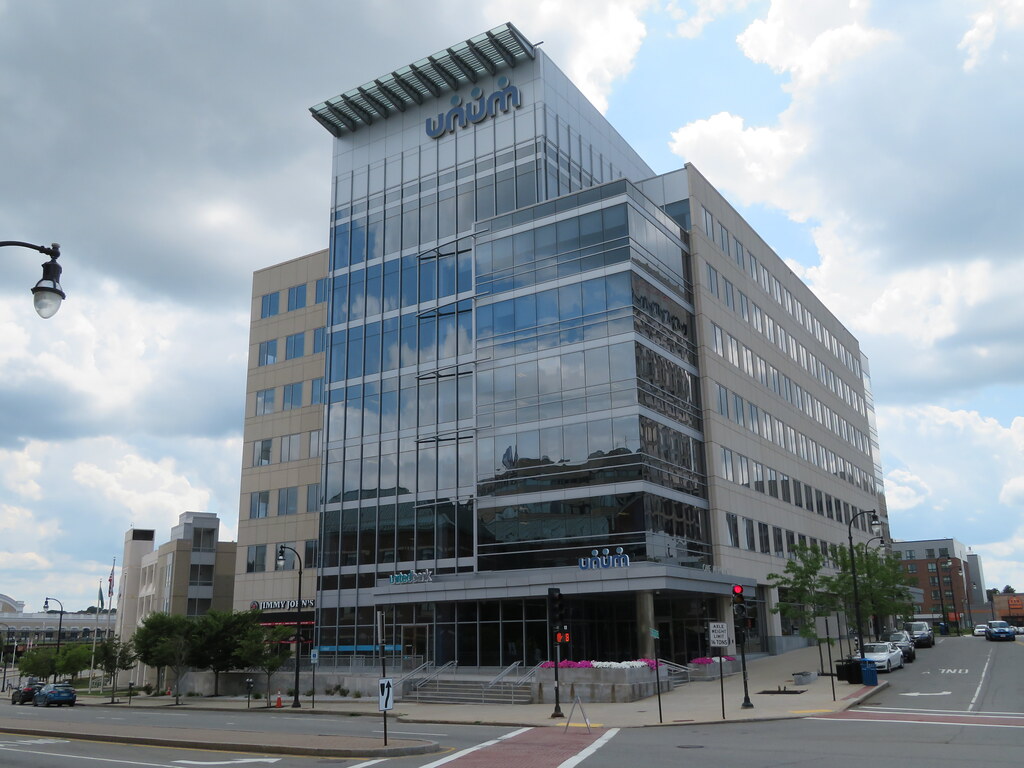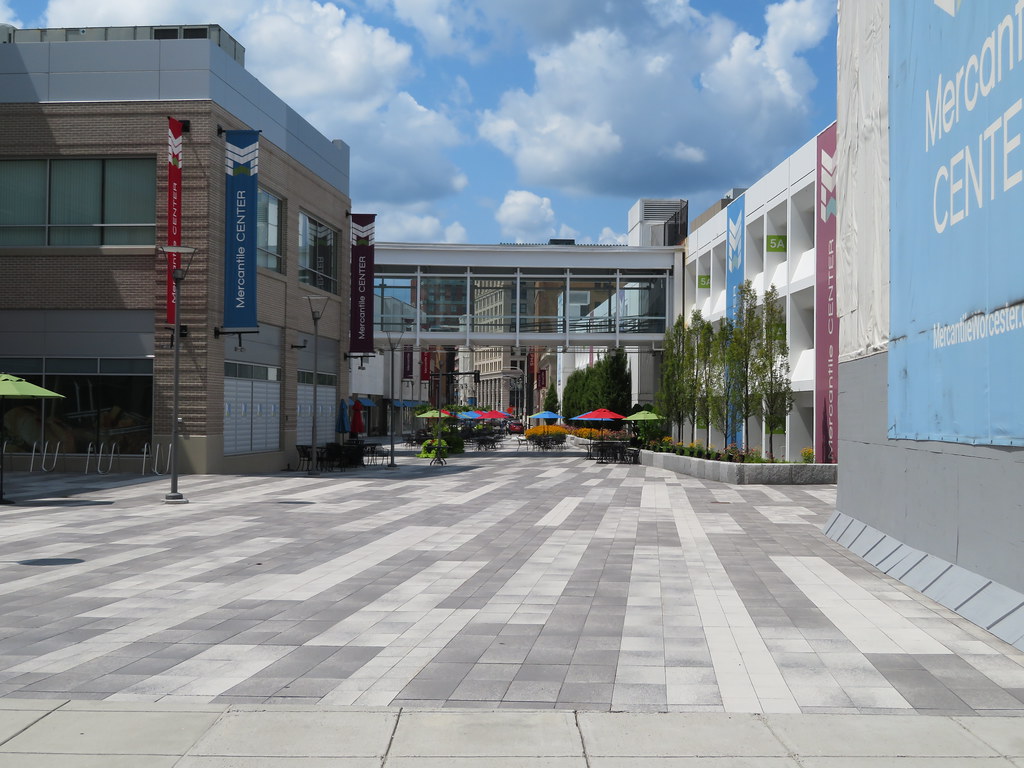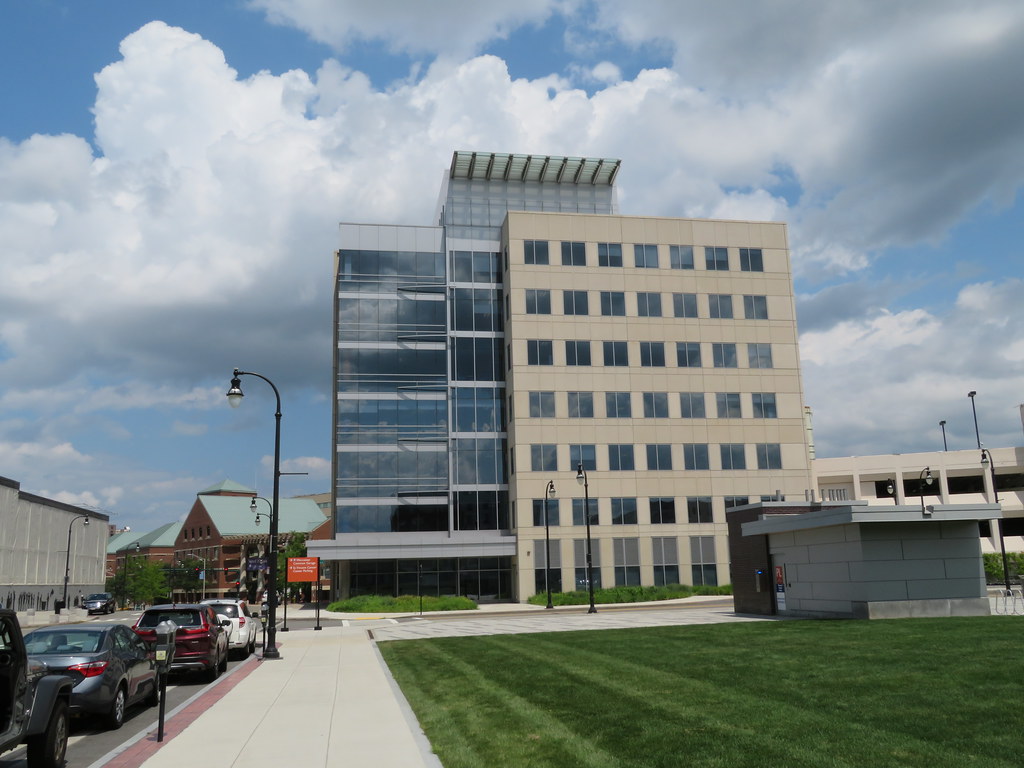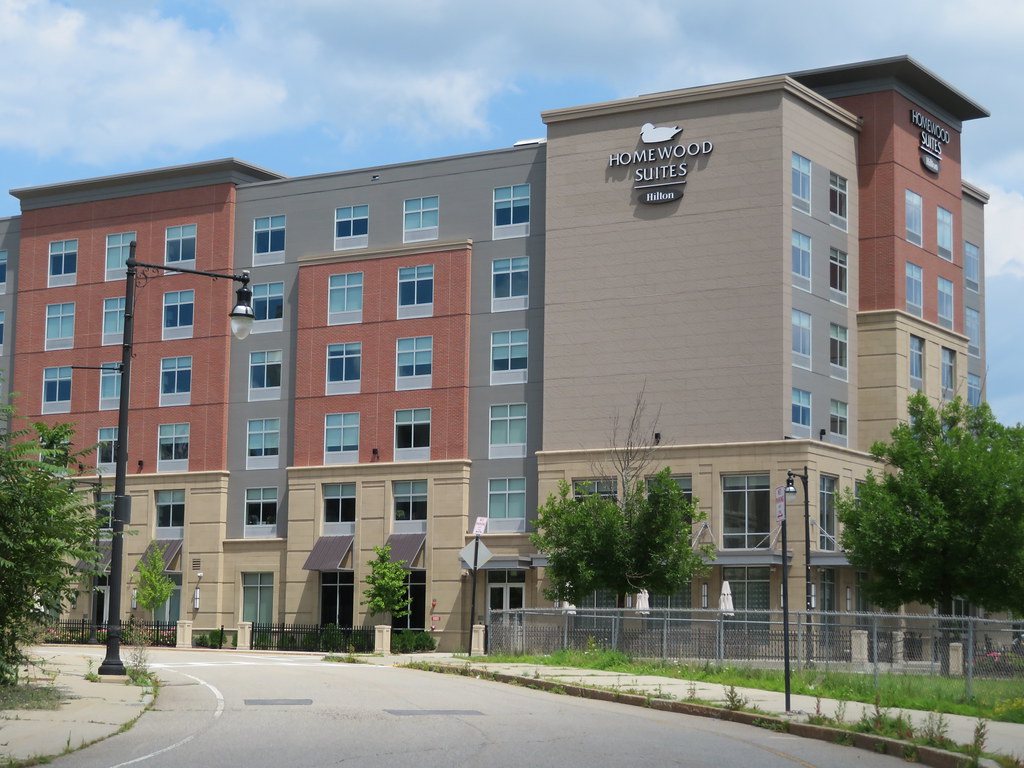Proposal detailed for CitySquare
HOTEL, HOUSING AND RETAIL PLANL UNVEILED
Aerial view of the CitySquare redevelopment project site in downtown Worcester. Proposed site of the Marriott hotel is visible between the former Notre Dame church and the People's United bank building. (T&G Staff/RICK CINCLAIR)
By Nick KotsopoulosTELEGRAM & GAZETTE STAFF
WORCESTER — The developer of CitySquare is proposing a next phase of private development downtown that calls for construction of a full-service, 150-room hotel, a 350-unit, market-rate residential development and 15,000-square feet of retail space.
City Manager Michael V. O'Brien said Friday those private project elements of the CitySquare development will then trigger the release of public funds to design and construct a 550-space underground public parking garage there.
Meanwhile, beyond the northern edge of the downtown plans to build a $10 million, 100-room Hampton Inn at Gateway Park at 65 Prescott St. have been revived and reworked, after the original financing plans for that project failed to win approval of the City Council Economic Development Committee earlier this year.
The combined investment of the development for CitySquare and Gateway Park exceeds $120 million, according to city officials.
But city officials made it clear that everything is contingent upon tax-increment financing deals, more commonly known as TIFs, being approved for each of the two hotels.
"Tax relief is essential to overcome the financial hurdles inherent in developing a new hotel," said Timothy J. McGourthy, the city's chief development officer.
"One hotel will not proceed without the construction of the other; if the (TIF) applications for both hotels are not approved, neither can be constructed and, as a result, the next phase at CitySquare will not move forward at this time," he added.
The same company (XSS LLC) that would build the Hampton Inn at Gateway Park would also build the hotel at CitySquare. XSS has built and operates two hotels in Worcester — Courtyard by Marriott on Grove Street and Residence Inn off Plantation Street.
One of its affiliates, Worcester Renaissance Hotel LLC, would lease land from CitySquare II Development Co. LLC in the part of the CitySquare development site known as "Building E" and build a Renaissance by Marriott Hotel there, according to Mr. O'Brien.
That area is the last standing remnant of the old Worcester Common Outlets mall and is located adjacent to 120 Front St, at Front and Trumball streets.
Mr. McGourthy said preliminary design plans for the hotel include a pool, fitness room, a business center and meeting rooms.
He said it would also include a 6,000-square-foot restaurant that would include service for lunch and dinner.
Mr. McGourthy said the total estimated cost of the hotel at CitySquare is about $36 million, which includes $27 million in hard construction costs, $4.15 million in soft construction costs and $4.15 million in furniture, fixtures and equipment.
The permitting process for that hotel is expected to begin in the spring, with construction scheduled to get under way in spring 2015. It is projected to open in late summer 2016 and create 90 new, permanent full-time jobs and an average of 150 full-time construction jobs.
That, combined with the hotel at Gateway Park, would add 250 hotel rooms in the city, according to city officials.
Mr. O'Brien said the additional hotel rooms would allow Worcester to attract more and larger conventions and events to the DCU Center.
In addition, upon the completion of TIFs for both hotels, city officials said they would generate more than $1,000,000 combined in new tax revenues annually.
"More hotel rooms will act as a catalyst for additional restaurant and retail opportunities," Mr. O'Brien said. "There is no doubt in my mind this is a win-win situation."
Meanwhile, Mr. McGourthy said CitySquare II is in conversations with a residential developer to create a $60 million residential project with 350 units of market-rate housing and approximately 15,000 square feet of ground-floor retail space.
"The residential project will only move forward with the added area vitality deriving from the proposed hotel," Mr. McGourthy said. "These two private projects, therefore, are dependent on one another."
He said the private elements of the development would then produce the tax revenues necessary to construct the next public element of the CitySquare project — a $28 million, 550-space underground public parking garage.
Mr. McGourthy said the residential/retail components are crucial to triggering the funding and construction of the underground public parking garage.
"Without the two private components moving forward, the public project elements cannot be achieved and the garage will not move to construction," he said.
To facilitate the proposed development, Mr. O'Brien is recommending changes to the District Improvement Financing District and General Development Agreement for CitySquare.
He has also submitted to the council the proposed TIF deals for the two hotel projects.
"Each of these is inextricably linked to the other," the manager said.
To make the hotel project feasible, Mr. McGourthy said the hotel developer (Worcester Renaissance Hotel LLC), is seeking a 10-year TIF that would generate a $4 million tax savings over the term of the deal.
Upon its completion, the city would realize an estimated $770,000 annually in real estate tax revenues from the hotel at CitySquare.
























